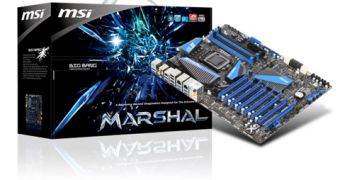Intel has recently informed the press that the issue which forced the company to halt production of its P67 and H67 Sandy Bridge chipsets is due to a transistor in the 3Gbps PLL clocking tree that was mistakenly over-volted when the PCH was designed.
The AnandTech website managed to find out what is wrong with Intel's latest chipsets by talking with Steve Smith, the company's director of Client PC Operations and Enabling.
According to the cited source, the problem resides in one of the transistors in the 3Gbps PLL clocking tree. As AnandTech reports, the transistor has a very thin gate oxide, which allows for it to be turned on with a very low voltage.
However, when Intel designed the Cougar Point PCH, it provided the transistor with too high of a voltage, resulting a leakage current which, over time, can cause the failure of the 3Gbps ports.
This means that only ports 2-5 are affected, as the SATA 6Gbps controller that powers the 0 and 1 SATA connectors uses a different PLL source.
The problem is accentuated when the motherboard is exposed to high temperatures or the PCH is over-volted.
To resolve the issue, Intel has decided to remove the voltage delivered to the problematic transistor all together, as permanently disabling the transistor won't affect the functionality of the chipset.
Unfortunately, although the solution is as simple as it gets, it will require a new spin of metal that is going to be associated with a new revision of the chipset (presumably a C-stepping).
Until now, Intel has shipped about 8 million 6-series chipsets, and the company is committed to set aside $700 million to deal with the repair and replacement of any affected PCH chips.
However, not all Cougar Point chipsets will be recalled as there is only a 5% chance that the bug will affect a desktop PC over the course of 3 years, so manufacturers may choose to wait for the problem to arise and then to exchange it for a fixed board.
If you have a notebook, chances are that you won't be affected by this bug as most mobile systems have just one or two drives that can be run of the two unaffected SATA 6Gbps ports.
OEM and motherboard manufacturers are going to talk to Intel over the next week to figure out how to deal with the affected products.

 14 DAY TRIAL //
14 DAY TRIAL //